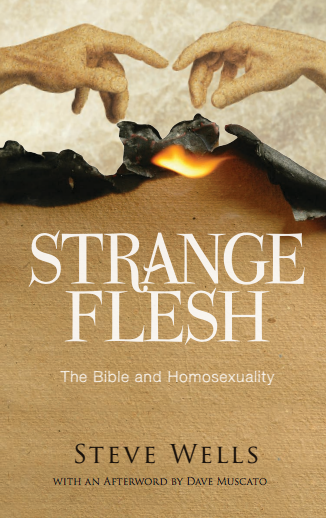Introduction
Societies throughout the world are struggling with their treatment of homosexuals and homosexuality, treatments that are to a large extent religiously based. For most of the last two millennia, the western world has been dominated by Christianity, a religion that is, or at least claims to be, based upon the Bible.
Since the Bible has had such a large influence on our culture, it is not surprising that it continues to influence views on homosexuality today. And although belief in the Bible has decreased in recent years in Europe, Canada and Australia, it is still believed by the majority of people in the United States and in much of the developing world.1 While the nature and extent of that belief varies widely, all believers believe the Bible to be the inspired word of God and look to it for guidance on the issue of homosexuality.
Many nonbelievers also view the Bible favorably, assuming that the "Good Book" is as good as believers claim it to be. They have heard about the Golden Rule, the Ten Commandments, the Sermon on the Mount, and the parable of the Good Samaritan, and they assume that the rest of the Bible must be similar. Nothing could be further from the truth, of course, as is evident to anyone who has read it. But since few believers or nonbelievers have read the Bible,2 most are unfamiliar with its views on any topic -- including, of course, homosexuality.
This situation makes it easy for advocates on both sides of the homosexuality debate to claim that the Bible says this, or the Bible says that, or the Bible says nothing at all about homosexuality. And since each side is preaching to its own choir, each choir tends to sing along as directed, without actually reading what the Bible actually says. Which is a shame, since the Bible does have something to say about homosexuality, although not nearly as much as it does about other topics, like how to perform ritual animal sacrifices, for example.3
There are only five passages that everyone on both sides of the debate agrees are about homosexuality, while disagreeing about their proper interpretation. Anyone who would like to understand what the Bible says about homosexuality should be familiar with these five. They are presented and discussed in Chapter 1: The Explicit Verses.
The Bible is filled with stories, and many of them are used by proponents in the debate to show that God feels precisely the same way as they do about homosexuality. Perhaps the best known and most important of these is the story of Sodom and Gomorrah. Although this story almost certainly has a homosexual component, the nature of Sodom's sin is less clear and much debated. It is the topic of Chapter 2.
There are two other Bible stories that involve homosexuality, at least to some extent: Noah's curse in Genesis 9 and the Levite's concubine in Judges 19. There are a whole host of other stories that are sometimes used in the homosexuality debate, often in rather startling ways. These "Gay Bible Stories" and "Possibly Gay Bible Stories" are told in chapters 3 and 4.
Eunuchs show up often in the pages of the Bible and, since they share some characteristics with homosexuals, how they are treated in the Bible may reveal the Bible's attitude toward homosexuality. These biblical eunuchs are the topic of Chapter 5.
Although there is only one explicit mention of lesbians in the Bible (Romans 1:26-27), there are several passages that are often used to either justify or condemn lesbianism. These passages are presented and discussed in Chapter 6.
Chapter 7 deals with the sexuality of the man who arguably had the greatest effect on Christianity: Paul. What was the nature of the "thorn" that Satan plagued him with? And what did Paul have to say about homosexuality?
The next two chapters are almost too embarrassing to describe. They involve Bible stories that allegedly reveal what few of us have ever seriously, or even jokingly, considered -- that both Jesus and Yahweh are gay. These stories are included, however, since they are often used in the debate, although often in an indirect way, by implication, insinuation, and innuendo.
It is often said that Jesus said nothing about homosexuality.4 And that statement is true insofar as it goes; there are no clear, direct, and explicit statements by Jesus about homosexuality per se in any of the gospels. But he had much to say about marriage, sexuality, and family life. These statements by Jesus, along with similar passages from the Bible as a whole, are presented in Chapter 10, Between the Lines.
The last two chapter titles were taken from a wonderful song by satirical singer-songwriter Roy Zimmerman entitled, "I want a marriage like they had in the Bible (because the Bible tells me so)."5 These chapters deal with marriage in the Bible and the biblical laws that believers should follow if they choose to follow the teaching of the Bible on homosexuality.
So let's begin our search of the scriptures6 to see what the Bible has to say about homosexuality.
Notes
1. Tom W. Smith, Beliefs about God across Time and Countries, NORC/University of Chicago, report released on 18 April 2012,
2. According to a recent (2013) survey by Barna Associates, only 20% of American adults have read the Bible from start to finish. Jeremy Weber, "Surprising Stats on Who Reads the Bible from Start to Finish," Christianity Today, http://www.christianitytoday.com/gleanings/2013/june/surprising-stats-on-who-reads-bible-from-start-to-finish.html.
3. Such bloody rituals must be important to God, judging from the number of times that he repeats their instructions. Indeed, the entire first nine chapters of Leviticus can be summarized as follows: Get an animal, kill it, sprinkle the blood around, cut the dead animal into pieces, and burn it for a "sweet savor unto the Lord."
4. Both sides agree on this, but disagree on its significance.
Theodore Jennings, Jr. says:
Legend holds that a book was published entitled Everything Jesus Said about Homosexuality. When opened, the book consisted of nothing but blank pages. The point is well made but is also misleading. I contend that the Jesus tradition contains a good deal that is relevant to the discussion of same-sex erotic relationships, and that all of it is positive. (The Man Jesus Loved, 8)
While Robert Gagnon makes the exact opposite claim, saying that "the silence of Jesus on the subject [homosexuality], combined with other factors, makes Jesus' opposition to same-sex intercourse historically probable." (The Bible and Homsexual Practice, 186)
5. Roy Zimmerman, You're getting sleepy, Metaphor Records, 2011, track 2.
6. John 5:39




